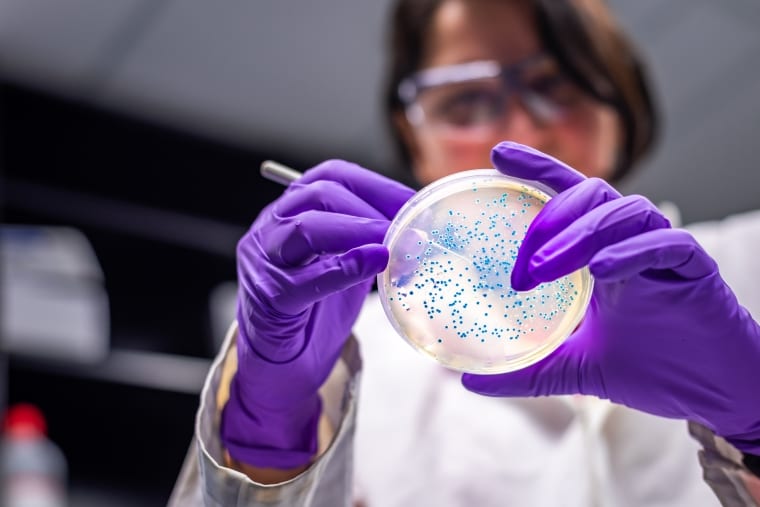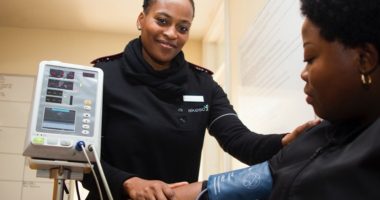As part of our In Conversation interview blog series focused on elevating shared value leaders and practitioners, I had the opportunity to interview Adilet-Sultan Meimanaliev, Director of Global Health Shared Value Initiatives at Lilly, the global pharmaceutical company that has been developing medicines for more than 140 years. Our conversation covered a lot of ground from health equity to the importance of cross-sector collaboration and the skills upcoming leaders will need in an increasingly dynamic and technological world. I hope you enjoy it.
Bobbi Silten: You have a unique title, Director of Global Health Shared Value Initiatives. Tell us how shared value fits into Lilly’s overall business strategy.
Adilet-Sultan Meimanaliev: When Lilly announced its 30×30 goal in 2016, which aims to improve access to quality health care for 30 million people living in limited resource settings annually by 2030, we recognized that we would have to develop a portfolio of shared value (SV) and philanthropic initiatives spanning across our pipeline, programs and partnerships. Whereas our core business model will continue to be the main driver of our social impact in terms of reaching people with our medicines, SV and philanthropy are important levers that extend our reach.
Globally, health systems vary in how they are regulated and financed, what capacity they have, and what access to health services they can provide. In countries where we operate, our traditional business model usually allows us to reach most patients served by the health systems. Yet, some patients are unable to access our products due to their inability to access or pay for health services and medicines, a weak or inefficient health system, or a combination of these and other factors. In some cases Lilly is able to reach those patients through philanthropic solutions, such as product donations and health system strengthening. In others, the company uses SV solutions, such as alternative access programs. All of these access programs seek to address specific access barriers at the institutional payer, distribution channel player (e.g., wholesaler or retail pharmacy), or individual patient level, and depending on the nature of the barrier, we have a taxonomy of approaches that our market access colleagues can choose from as they develop access expansion programs.
BS: Your company has been very active in the response to COVID-19. How has Lilly’s corporate purpose guided the company through this time?
ASM: Our corporate purpose – to unite caring with discovery to create medicines that make life better for people around the world —guides every action we take. In response to the pandemic, Lilly quickly mobilized its expertise to develop antibodies-based treatments in record time and announced access and affordability principles.
Our CEO David Ricks said it best, “Core to our purpose is our commitment to aid human suffering – independent of an individual’s or nation’s economic status – and to conduct our business in a responsible way for the long term.”
“Our corporate purpose – to unite caring with discovery to create medicines that make life better for people around the world —guides every action we take.”
BS: Lilly has a bold goal of improving access to quality health care for 30 million people each year by 2030 and you’ve recently joined with the Bill & Melinda Gates Foundation and other collaborators to accelerate COVID-19 vaccines, diagnostics and treatments and to ensure equitable access to them. Share with us some the highlights of your work in providing more equitable access to healthcare.
ASM: Lilly 30×30 is a bold goal indeed. The company purposefully set this ambitious goal to elevate our social impact globally. We want our medicines to reach patients that need them, irrespective of where they live or their financial status, and we seek collaborations that can help us achieve that goal.
In 2020 Lilly joined the Gates Foundation’s initiative to accelerate equitable access to novel COVID-19 treatments in low- and middle-income countries. More recently, in early May of 2021, we announced that Lilly will donate its COVID-19 therapies to Direct Relief, which will provide them at no cost to the hardest-hit low- and middle-income countries.
Lilly also joined an alliance of partners to launch the AMR (addressing antimicrobial resistance) Action Fund aimed at developing two to four novel antibiotics by 2030. Antimicrobial resistance is a serious global health threat that annually kills an estimated 700,000 people worldwide. What’s novel about the AMR Action Fund is the shared value approach it’s taking in both addressing the supply side challenges and the demand side by working with governments to create market conditions that will enable a sustainable antibiotic pipeline in the future.
I would be remiss if I didn’t mention the expansion of our long-term partnership with Life for a Child (LFAC) aimed at addressing inequity in access to quality diabetes care for children living with Type 1 diabetes in developing countries. Through this effort, Lilly has donated over 2 million insulin vials since 2009 and helped strengthen the target countries’ diabetes care sub-systems via LFAC, which partners with national diabetes associations and leading hospitals to provide care. Over the next decade, we will increase our reach almost seven-fold to 150,000 people across 65 countries.
BS: Knowing how much the world has changed in the last year, what skills do you think upcoming leaders will need to be better equipped for the future?
ASM: In my mind, in our increasingly diverse, dynamic, and technologizing world, the next generation of leaders will need greater learning agility, active listening and coaching. Learning agility will help leaders to stay the course towards their vision and be able to course correct to keep up with the speed of change.
Active listening and coaching will be important for leading people. Leaders will need to understand and appreciate people’s diverse backgrounds and perspectives to bring out the best of people’s talents and they will need to be good coaches to develop those talents and bring the people along towards their vision.
BS: What are you reading, watching or listening to that’s shaping your thinking about corporate purpose, equity and shared value?
ASM: My ‘go-to’ resource for all things shared value is the content on the SVI site, Bobbi. I often revisit the foundational concepts and case studies to learn from SV practitioners from various industries.
Next on my list is learning from the social impact work by pharmaceutical companies. How are our peers integrating shared value and equity into their business strategies? How do they evolve and innovate in this space? While the industry-wide environment is the same, the portfolios and capabilities vary. So, this peer learning helps me see how Lilly compares, and whether there’s anything replicable that could help us augment our work.
Thirdly, I like thought pieces developed by management consultancies. Their insightful cross-industry analyses and perspectives are always great food for thought and cross-pollination of ideas.
Finally, I read all open letters penned by Larry Fink.
BS: What is one thing you’re optimistic about for the near future?
ASM: I am optimistic about our collective ability to curtail the pandemic soon and create a stronger and more resilient society. Everybody’s doing their part and we’re all making progress. Innovators are developing new treatments and vaccines; manufacturers and supply chain operators are overcoming the supply and distribution challenges; governments and health systems are learning to cope with COVID-19 while re-optimizing healthcare delivery; and people and businesses are adapting their practices. We will innovate our way out of this pandemic and the global economy will rebound. We won’t come out of it unscathed, but we will emerge wiser, stronger, and better prepared for future pandemics.
This interview is part of In Conversation, our ongoing series that elevates shared value leaders and practitioners from around the world to share their stories and shed light on their day-to-day work – we hope that their stories will inspire you to think differently as you drive your own work forward.




